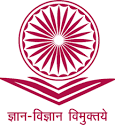Bachelor of Commerce
About Program
The Bachelor of Commerce (B.Com) is a 3‑year undergraduate degree that provides foundational knowledge in commerce, accounting, finance, taxation, management, and business law. It equips students with quantitative and analytical skills to pursue careers in finance, accounting, banking, taxation, and business operations.
Bachelor of Commerce Program Accreditations:

